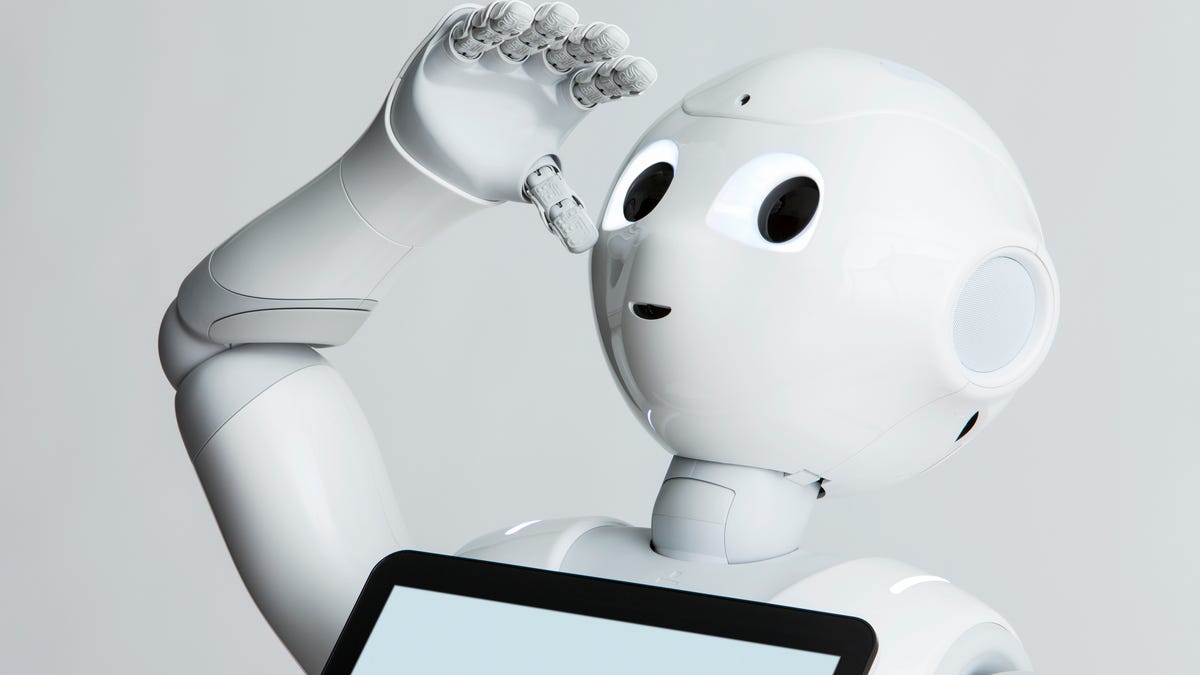I played Cards Against Humanity with Pepper the robot at CES
Pepper has arrived in the US and wants to be the ultimate internet of things device -- first in shopping malls, but eventually in your home.

With eyes like saucers and a cute button nose, Pepper the robot is instantly recognizable.
I first met Pepper in Tokyo back in April, and there's barely been a tech event I've been to since that Pepper hasn't also attended.
SoftBank's robot has come to be a kind of de facto face of robotics over the past few years thanks to its presence in shopping malls, cruise ships and in airports around the world. It recently arrived in the US for the first time and can be found in a handful of Westfield malls in San Francisco's Bay Area, with more to come soon. At the same time, SoftBank is searching out new businesses and environments in which Pepper could potentially play a role, which is why I got to reconnect with the robot in at CES in Las Vegas.
But unlike my previous times meeting with Pepper, this encounter was a little more... risque.
I first met Pepper in a Softbank store in Tokyo.
I've never been the biggest fan of the game Cards Against Humanity, but I couldn't turn down the opportunity to play with Pepper. The robot flashed up an unfinished sentence on its screen and a bunch of us gathered around, a web app open on our phones. We each tapped on a word from the card selection on our screen to cap off the sentence, and Pepper picked the funniest response.
Hearing the explicit responses emerge from the robot's mouth was akin to seeing Winnie the Pooh spouting profanities -- by which I mean, hilarious. But that was hardly the point of the exercise.
"What we're trying to showcase here is the connection as an [internet of things] device," said Steve Carlin, vice president of SoftBank Robotics for North America.
Bartender Pepper
In the Cards Against Humanity demo, Pepper connected with our phones, in another it was Philip's popular Hue lightbulbs and in a third -- perhaps my favorite Pepper encounter to date -- it was with a sensor-equipped tap, which proved to me that Pepper could well be worthy of a place in the hospitality industry.
A couple months back I went to a small, well-regarded cocktail bar called the Little Red Door in Paris. The cocktail menu consisted of a booklet with a different picture on each page. To choose a cocktail, you pick the image that most appeals to you and tell the corresponding page number to the waitress.
Getting a drink from Pepper was a similar experience. Only instead of choosing images from a booklet, I chose from options on a screen -- a mountain or a beach, a blue scribble or a yellow scribble. Pepper decided what I needed to quench my thirst was a Screwdriver, and when I agreed I was happy with the recommendation, a signal was sent to the tap, which began to pour.
For now, Pepper robots will be found in commercial environments such as this, but eventually SoftBank wants to sell the robot as a consumer product.
"That's always been the goal, to get a robot into people's homes," said Carlin.
A big boost will come, he added, as people grow increasingly comfortable with talking directly to their technology instead of tapping on a screen.
So why the wait? The answer is partnerships, both with big companies and individual developers.
"What becomes important for any robot is the creativeness of the development community coming onto the platform," said Carlin. "We are actively going out to these communities. When that development community brings its creativity to bear, we've got a great opportunity for the consumer market."

